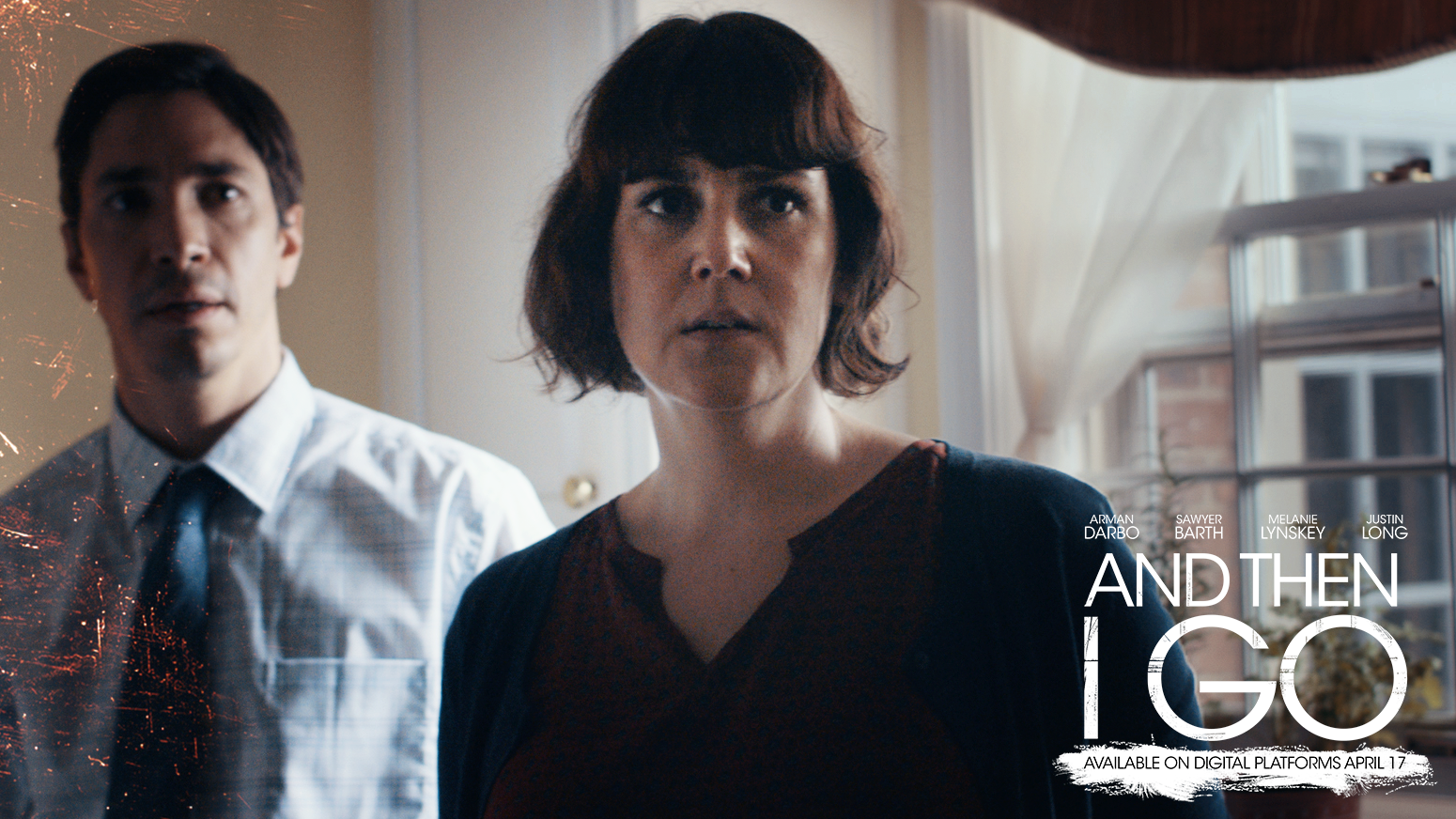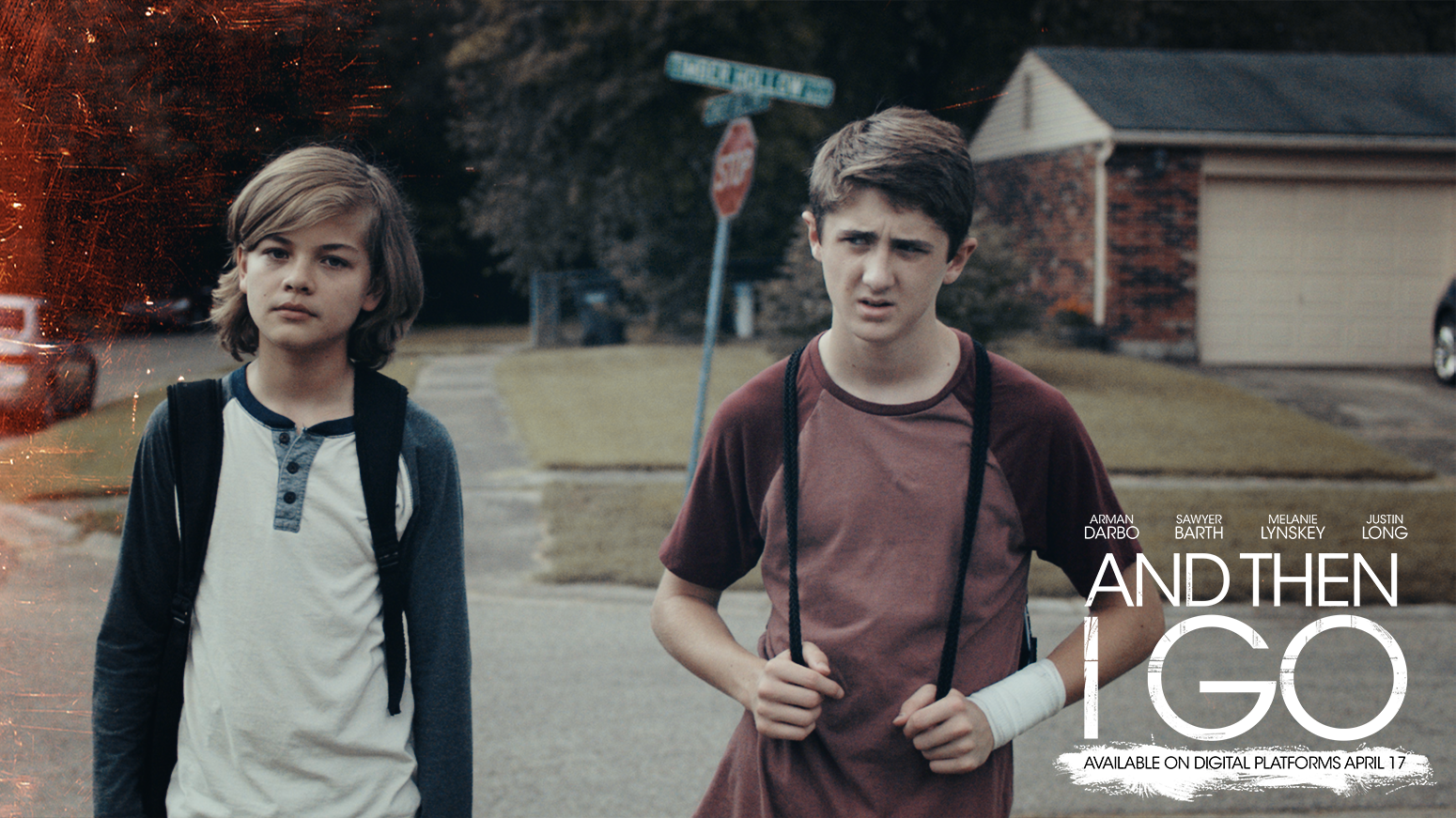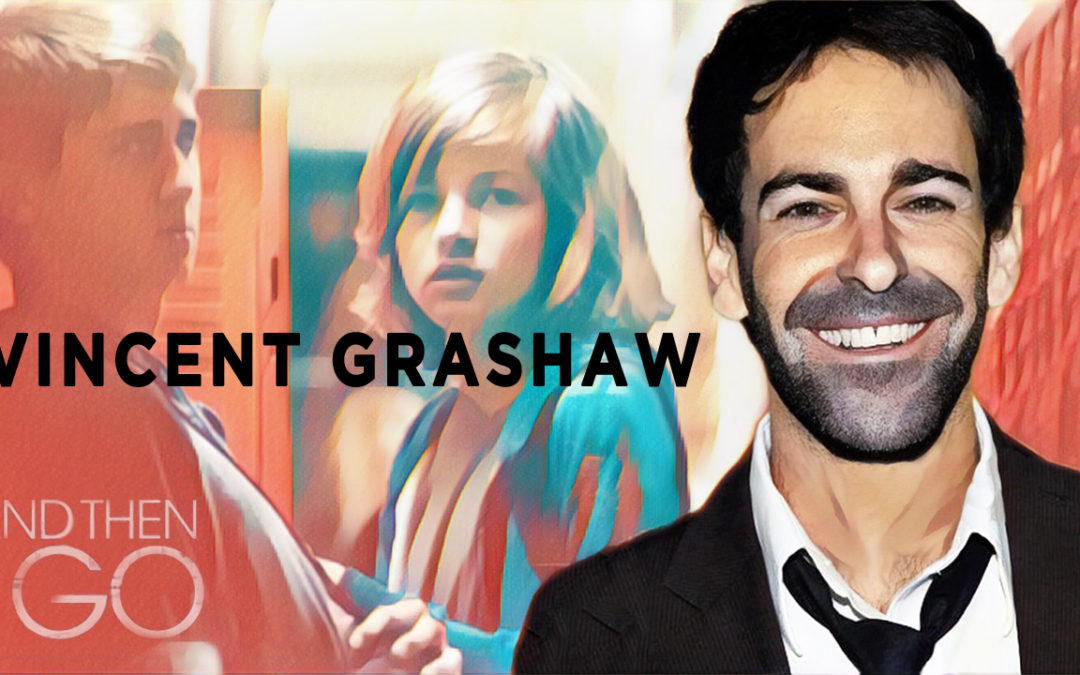Lunacy Productions is proud to present the powerful and harrowing drama AND THEN I GO, available on digital platforms everywhere!
Starring Melanie Lynskey, Justin Long, and newcomers Arman Darbo and Sawyer Barth, And Then I Go tells the story of two bullied junior high students whose alienation drives them toward increasingly destructive behavior.
Lunacy was thrilled to work with superstar producers Rebecca Green and Laura D. Smith (It Follows, I’ll See You In My Dreams) to bring this project to the screen. Indie writer/director/producer Vincent Grashaw (Coldwater, Bellflower) helmed the film, which is based on the novel Project X by Jim Shepard.
Lunacy – Did you always want to be a director?
Vincent Grashaw – Yeah, I grew up watching movies and loving movies. It was always something I wanted to do. I started writing scripts when I was in high school. When I started writing, I didn’t know – (laughing) – when it says “INT” and “EXT” I didn’t know what that meant. I thought it just meant the beginning and the end of the scene. So the first script I ever wrote, I wrote it that way. There was no one to explain it to me back then.
But I went online and they had this great website called Drew’s Script-O-Rama, and you could read scripts online. So I read all these great scripts on there and that’s how I learned. That and watching movies. I never went to film school or anything. I just did it.
When I was a senior in high school I shot a WWII movie. Just me and my friends. We got all this authentic equipment, we had live ammo and blanks, and we went out and shot this thing. My dad was the only chaperone. Looking back it was pretty impressive for a 16-17 year old.
LU – In 2011 you made a movie called Bellflower that was a standout at Sundance. You were credited as a producer, editor, and a bunch of other things. How did you get involved in that?
VG – Yeah, on Bellflower everyone had to wear a lot of hats. When you’re making a movie for under $20K, everyone has to do a lot of different jobs. But that was a case of 10 or 12 friends getting together and doing whatever we had to to get the movie made. Everyone was working for free, contributing however they could.
We shot in our free time. It actually took about two years to get it made, but we shot most of it in one summer. Then it took some time for pickups and post and everything. But it was great because it did really well and sort of catapulted us to the next level.
LU – The first film you directed, Coldwater, deals with boys in a juvenile detention camp. And Then I Go is about a pair of troubled eighth grade boys. What draws you to these stories about angry young men?
VG – Well, I don’t really think of them that way. For me they are stories about friendship, and how important your friends are at that age. In Coldwater the Brad (P.J. Boudousque) is sent to this camp in the woods, and then later one of his friends from home who always looked up to him ends up there too. And he sees what kind of example he set and he knows he’s got to help this kid get out of there.
In And Then I Go, Edwin (Arman Darbo) and Flake (Sawyer Barth) have this bond that is so important to them, in a way their families can’t understand. It might not be the healthiest friendship but it means so much to them. That’s what interests me. How those early relationships shape you at such an emotional and confusing time in your life.

Justin Long and Melanie Lynskey
LU – There’s an amazing scene in And Then I Go when Edwin crawls under his bed and his mom (Melanie Lynskey) comes into his room and he can’t explain to her why he’s under the bed so she just crawls down there with him.
VG – Yeah, I think at that age kids can kind of go left or right, you know? Like high or low, and there’s no telling what might set them off in one direction or another. They don’t even know. So they could be on the edge and maybe you say the right thing and it could calm them down, but another time they could seem fine and you say the wrong thing and it pushes them over the edge.
She gets under the bed and hugs Edwin and tries to connect, she thinks she’s doing the right thing trying to comfort him, and she says, “Sometimes we just can’t handle things. It’s too hard, but that it’s ok,” and that sets Edwin off. Because to him she has no clue about the shit on his shoulders. And kids don’t necessarily want to be told, “You’re a kid, you can’t handle something.”
LU – You’ve gotten great performances out of young, relatively inexperienced actors. What’s your secret?
VG – Well first of all it’s casting. We’ve been able to find really great actors for these roles. And it’s so important in And Then I Go because these kids make or break the movie. And they’re so different. Different personalities, different methods.
Arman is a world traveler. He spent eight years growing up in China. He speaks all these languages. So to help him connect to the character we talked about how hard it is to make lasting friendships when you’re moving and growing up in all these different places. And he’s amazing in that he can just turn it on or off. He’ll be playing on his phone and I’ll say, “We’re about ready to go.” He’ll just hop up like, “I got this.”
Sawyer is very different. He’s so full of confidence. He came in to audition for Edwin and the casting director really felt like he had a better energy for Flake. But he’s very confident and intense, and always ready to go.
Getting a good performance is the same though, no matter how old the actor is. You just want to make them feel safe and comfortable. Communicate. We talk a lot. We rehearse too, but we didn’t do a lot of reading. We just talk about these characters and who they are so we’re all on the same page.

LU – What’s the hardest part of working in indie film?
VG – The hardest part… well, there’s really only one hard part for me. Getting the financing. That’s the hard part for everyone. Everyone is looking for money. The rest of it… sure, there are challenges and things don’t always go smoothly. But that’s part of the fun.
LU – Do you have any advice for filmmakers out there planning on shooting something on a small budget?
VG – Sure. First, figure out what your budget is and find a script that can work on that budget level. I’m not talking single location, horror film, that kind of thing. Just recognize the limits and figure out what you can do with the tools you have. I made a movie for $17K. It can be done.
And be grateful for all the people who come out and help you. Really show your appreciation, because in the end, it will mean more to you as a director than it will to any of them. So you’ve got to be humble and recognize what these people are doing and sacrificing to help you.
LU – What’s up next for you?
VG – I’ve got a psychological thriller called What Josiah Saw that I’m working on. We’re getting the financing in place, attaching talent, preproduction. So that’s up next. I’m really excited about it. It’s different than anything I’ve done so far, but I also think it’s the closest thing to my aesthetic. I’m pretty sure it’s going to be my favorite thing I’ve done.
Thanks for reading, and make sure you check out Lunacy Productions’ AND THEN I GO available OnDemand and on the following digital platforms now!
iTunes / Google Play / FandangoNow / Amazon

